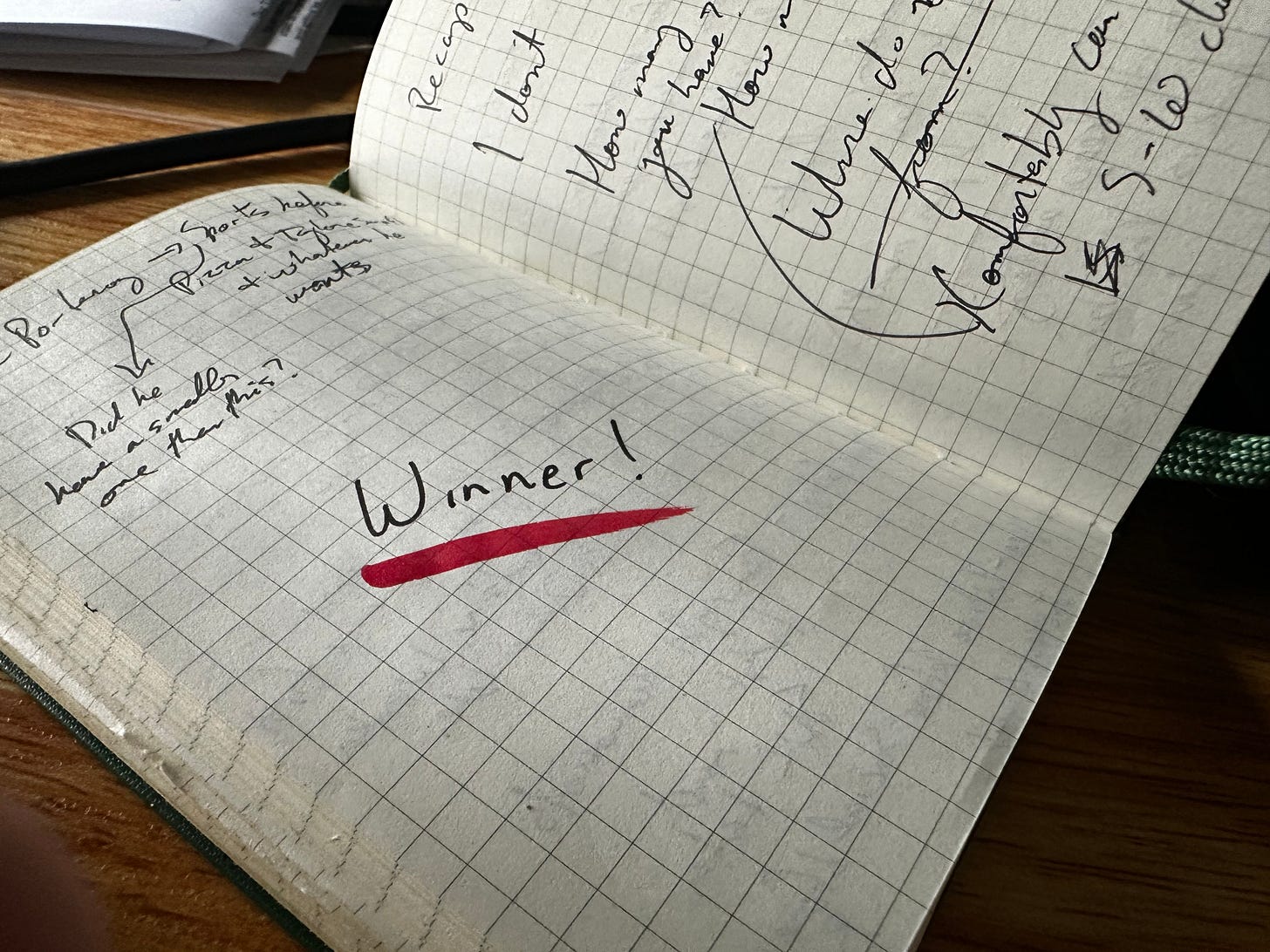stop trying to be the best writer
There is no such thing as “the best writer.” There are only writers who tell the truth, and those who don’t.
Context:
A couple weeks ago, I found myself on a phone call with one friend and one celebrity chef. The Chef made a living traveling and cooking, writing and teaching. He’s draped in James Beard Awards. Appeared alongside Martha Stewart. Wrote for the New York Times. Featured on the Today show.
Impressive stuff.
He came to us because Google slashed his website traffic. A site that once got nearly a million visitors per month was now “only” getting 250K or so.
That context is mostly immaterial, but it helps you understand what happened next.
My friend and I asked him a lot of questions. We wanted to help:
“What’s your email list size?”
“What’s your product list?”
“What are your goals for the rest of this year?”
And so on.
One question we did not bother to ask:
“Are you the best at what you do?”
There’s this scene in Woody Allen’s Midnight in Paris where Owen Wilson is sitting in the back of a time-traveling Rolls Royce with Ernest Hemingway.
Hemingway says something to this effect:
“Writers are competitive. If you're a writer, declare yourself the best writer - but you're not the best as long as I'm around. ”
Owen Wilson nods politely.
Partially because he’s more interested chasing a woman than writing his novel. Partially because he knows there is no such thing as the “best writer.”
Even in Hemingway’s time, there wasn’t a best writer. To attempt to crown a “best” writer is to invite a pile of qualifying questions.
“The ‘best’ in what genre? In what time period? Are we defining ‘best’ by sales figures or critical reviews? By ‘best’ writer, do we mean ‘most prolific’ writer or is it ‘better’ to have written a single, phenomenal novel? While we’re at it, do you mean the ‘best’ across this fixed time period, or the ‘best’ of all time?”
Consider your high school English teacher.
Was this person the “best?”
(I mean, mine was. So I know yours wasn’t. Unless you went to Dickson County High School in 2008 and sat through Dr. Jones’s deconstruction of Hamlet.)
So since your English teacher isn’t the best, does that mean they have no value?
Of course not.
Your English teacher just helped you get closer to the truth.
And, vague as this sounds, that’s one “benefit” that all readers are after. Finding the truth.
Defining truth is tricky. For our purposes today, we’ll define truth as something that helps you make sense of your world.
Using that definition, I can give you a piece of truly optimistic information.
You don’t need to be the “best” to help people find truth.
You don’t need a niche. You don’t need a bio. You don’t need a book deal. You don’t need “Six Easy Copywriting Hacks!”
You need to present the truth. Then present your evidence for that.
If you read Elle Griffin’s Substack publication, you’ll find some truth in there. If you read Neil Gaiman’s novels, you’ll find some there. If you read Maggie Smith’s poetry, you’ll find truth in there as well.
You’re also likely to find some truth in:
Elon Musk’s Tweets
Elon Musk’s critics
Brené Brown’s books
Terry Pratchett’s satire
Paul Graham’s essays
Call Her Daddy’s Instagram posts
Are any of these people “the best” writer?
No.
As mentioned, that trophy is impossible to award.
But they all tell the truth. They help their readers make sense of the world in some way.
That’s enough.
What Makes Great Writing? is a publication specifically for people who want to improve their writing.
It is NOT for people who want to
Hack the process,
Replace themselves with AI,
Find “super quick tips.”
If you’re in the first group, subscribe. If you’re in the second, begone foul beast.


